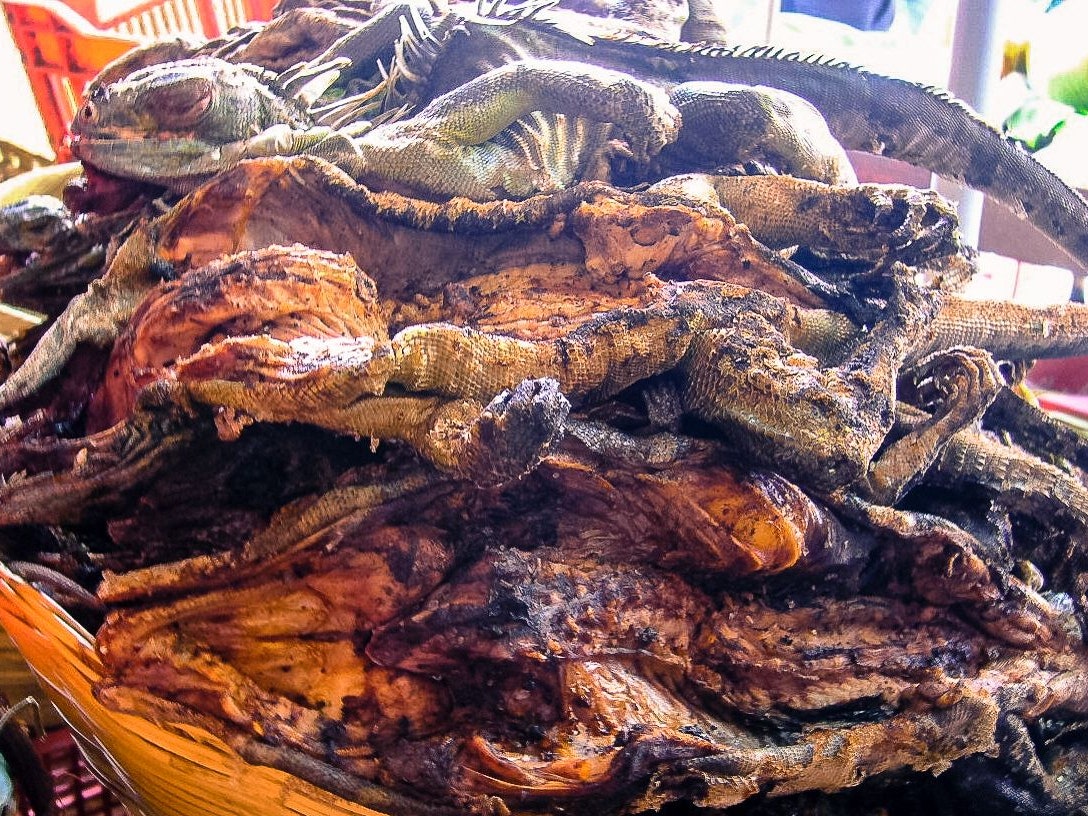Iguana meat is described as having a flavor that is similar to chicken but with a slightly fishy taste. The texture of iguana meat can vary depending on how it is prepared, but it is often described as being tender and juicy. That being said, it is important to note that iguanas are protected in many countries and that consuming them may be illegal or against regulations.
Know More About what does iguana taste like
Title: A Taste of the Exotic: Exploring the Flavors of Iguana Cuisine
Introduction:
Embarking on a culinary adventure is one of life’s most intriguing pleasures. It allows us to embrace diverse cultures, traditions, and delicacies that shape our world. Today, our taste buds will be transported to the lush tropical forests of Latin America as we explore the intriguing question: what does iguana taste like? Join me as we delve into this unique delicacy that has captivated the palates of many adventurous food enthusiasts.
Eating Iguana: A Cultural Delight:
In certain regions of Central and South America, iguana meat holds a special place in culinary traditions, representing a fusion of indigenous flavors and influences from colonizers. Iguana dishes are especially prominent in countries like Mexico, Ecuador, and Panama where they are considered a local delicacy, packed with nutritional benefits and a distinct taste.
The Texture of Iguana Flesh:
Iguana meat is known for its tender and succulent texture, often likened to chicken or rabbit. The flesh can be prepared in various ways, depending on the regional cuisine or personal preference. From hearty stews and slow-cooked roasts to skewered kebabs and pan-seared fillets, each dish offers a unique experience of flavor and texture.
The Unique Flavor Profile:
What sets iguana meat apart is its distinctive, gamey taste. The flavor can be described as mildly earthy with a hint of sweetness, making it a true gustatory adventure. This taste is a result of the iguana’s diet, which predominantly consists of fruits, flowers, and leaves found in their natural habitat. These herbivorous tendencies translate into a flavor profile that boasts a combination of herbaceous, fruity, and slightly gamey notes.
Culinary Preparation Techniques:
To transform iguana into a delectable dish, the preparation process involves meticulous attention to detail. Like any other lean meat, it benefits from marinating to enhance its flavors and ensure tenderness. Local marinades often include ingredients such as garlic, lime juice, cumin, and various herbs and spices. Whether it’s braised, grilled, or simmered in a rich sauce, iguana meat showcases the versatility of Latin American culinary traditions.
Nutritional Benefits:
Beyond its intriguing taste, iguana meat also boasts nutritional benefits. It is a lean protein source, low in fat and high in essential amino acids. Additionally, iguana meat is rich in minerals and vitamins, including vitamin A, vitamin C, and calcium. Incorporating these nutrients into one’s diet can support immune function, promote healthy skin, and contribute to overall well-being.
Sustainable Harvesting Practices:
It’s important to emphasize that iguanas used for consumption are typically farmed or sustainably harvested, ensuring the preservation of their populations and natural habitats. Proper sourcing and respectful treatment of this reptile is crucial to protect their ecological balance and safeguard their existence in the wild. By embracing sustainable food practices, we can contribute to a healthier, more sustainable planet.
Conclusion:
Embarking on a culinary journey allows us to broaden our horizons and gain a deeper understanding of different cultures. Discovering the taste of iguana opens our palates to the rich and diverse flavors found across the globe. From its tender texture to its unique flavor profile, iguana meat offers a harmonious combination of herbaceous, fruity, and slightly gamey notes, ensuring an unforgettable dining experience. So, the next time you encounter an opportunity to explore exotic delicacies, relish the journey and savor the flavors that connect us all.
FAQs on what does iguana taste like
1. What does iguana taste like?
– Iguana meat has a unique flavor, often described as a cross between chicken and fish.
2. Is iguana meat safe to eat?
– Yes, it is safe to consume if properly prepared and cooked to eliminate bacteria or parasites.
3. How is iguana meat prepared?
– The most common method is cooking iguana meat in stews, soups, or on a grill. It is usually marinated to enhance the flavor.
4. Does iguana taste gamey?
– Some people find iguana meat to have a slightly gamey taste, similar to other reptiles, but it is milder than some wild game meats.
5. Can iguana meat be used in various dishes?
– Absolutely! Iguana meat can be used in a variety of dishes, including tacos, burritos, stir-fries, and even as a replacement for poultry in certain recipes.
6. Are there any health benefits to eating iguanas?
– Like other lean meats, iguana meat is a good source of protein and contains healthy nutrients such as vitamins and minerals.
7. Is iguana meat commonly consumed in any particular regions?
– Iguana meat is popularly consumed in certain countries, especially those in Central America and parts of the Caribbean, where it is considered a local delicacy.
8. Can iguana meat be used as a substitute for other meats?
– While some people enjoy using iguana meat as a substitute for chicken or fish, it may not be widely available and can be challenging to find in many regions.
9. Is iguana meat considered sustainable?
– In areas where iguana populations are abundant, hunting and consuming iguana meat can help control their numbers and promote ecological balance.
10. Where can I buy iguana meat?
– Under most circumstances, it can be challenging to find iguana meat at regular grocery stores. However, you may find it at specialty exotic meat markets or through local suppliers in regions where it is commonly consumed.




Leave a Reply